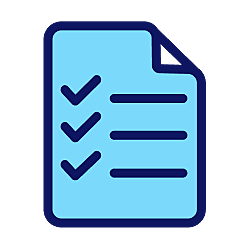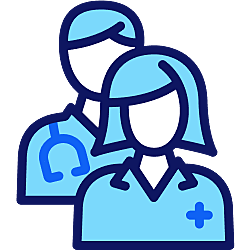PrEP (pre-exposure prophylaxis)
Get PrEP (pre-exposure prophylaxis) online to protect you from getting HIV. Available with free and fast delivery.
Prices from £59.00
Simply fill in a brief consultation questionnaire and one of our doctors will review your request today.
PrEP is a medicine which provides protection against HIV. If you are taking PrEP and you get exposed to HIV, PrEP can block HIV from causing an infection. HIV is a serious virus which, if left untreated, affects your immune system.
PrEP is suitable for people who are at risk of getting infected. It can be taken daily (for all kinds of sex), or in the days before and after sex (for only anal sex, not vaginal or frontal sex). It contains two drugs which have been used for many years in HIV treatment, and it is highly effective at stopping HIV. Before you start getting PrEP from ZAVA, you will need to take some tests to ensure it is suitable for you.
PrEP
In stock. Prices from £59.00

No results found.
Please check your spelling or try another treatment name.



About PrEP
-
-
PrEP is an antiretroviral medicine that significantly reduces your chances of getting HIV. ‘PrE’ stands for ‘Pre-Exposure’ because PrEP is only effective if it is taken before exposure to HIV. The other ‘P’ stands for ‘Prophylaxis’, meaning a treatment or action you take to prevent an infection or disease.
PrEP is a tablet which you can take daily to stay constantly protected against HIV. It can also be taken before and after planned anal sex. When taken correctly, PrEP is extremely effective at preventing you from getting HIV.
What does pre-exposure prophylaxis mean?
‘Pre-exposure’ means ‘before coming into contact with’ something, in this case, the infection HIV. ‘Prophylaxis’ is a treatment that protects you from getting an infection.
What are the different types of PrEP?
The PrEp that is available in the UK contains two drugs:
- Tenofovir
- Emtricitabine
PrEP is either supplied under the brand ‘Truvada’, or a generic equivalent which contains the same ingredients and works the same way.
-
-
Tenofovir and Emtricitabine are antiviral medications known as nucleoside/nucleotide reverse transcriptase inhibitors (NRTIs). They block HIV if it gets into your body by stopping the virus from multiplying.
Studies have shown that the PrEP once-daily regime reduces the risk of getting HIV from sex by more than 90% with the risk being reduced further when this is combined with condom-use.
-
-
PrEP is worth considering if you are HIV negative and at high risk of catching HIV.
People who are at high risk include:
- men, non-binary people, and transgender women who have sex with men and do not always use condoms
- those who are HIV negative but whose partner is HIV positive
- those who have sex with people from places where HIV is common
- black African women and men
- people who inject drugs
- people who exchange money for sex
If you are HIV negative and take PrEP properly, you will be nearly 100% protected against catching HIV.
PrEP is not suitable for people who are HIV positive.
There are other people who may be at risk, so it’s important to let your doctor know any of your health conditions or lifestyle choices before starting PrEP.
-
-
PrEP is almost 100% effective at preventing HIV, and the drugs it contains are well researched as they have been used in HIV care for many years.
It is very important to take PrEP exactly as directed. Not doing so can increase your chances of getting HIV if you are exposed. For PrEP to be most effective, it must be taken daily.
-
-
When you request PrEP from us, our doctors will ask whether you’ve had:
- a negative HIV test result
- a normal kidney function test result
- a negative hepatitis B and C test result — you only need a negative hepatitis B result if you’ve not had a hepatitis B vaccination, and you only need a negative hepatitis C result if you are a man who has sex with other men or a trans woman
You can still request PrEP if you haven’t taken one or more of these tests. However, you must take these tests before you begin taking PrEP. You can order any PrEP tests you need from us and complete these at home.
It’s also recommended that you do a full screen test for sexually transmitted infections (STIs).
To request PrEP treatment, simply complete our brief medical questionnaire. One of our doctors will review your responses and approve treatment, if suitable.
We can provide PrEP to both new and current users.
-
-
PrEP is usually taken in two different ways:
- daily
- only when needed, which means taking two tablets 2 to 24 hours prior to sex, one tablet 24 hours after sex, and another one 48 hours after sex (but this is only effective for anal sex, not vaginal or frontal sex)
PrEP can be taken at any time of the day, with or without food. If taking PrEP daily, take it at the same time every day.
When should I start taking PrEP?
Taking PrEP every day is the safest option because it gives continuous protection. This method is suitable for anyone who needs protection from HIV.
PrEP starts working after it has been taken for 7 days. However you take PrEP, you need to continually take it to stay protected.
Taking PrEP only when needed is often referred to as ‘on-demand’ or ‘event-based’. It has only been researched in gay and bisexual men, and so is not suitable for other sexual orientations. It is also not suitable for people with hepatitis B.
Why is it important to be HIV negative before and during PrEP therapy?
This is because you could develop resistance to HIV medication if you were HIV positive and taking PrEP.
There have been cases of people who have unknowingly been HIV positive and started, or continued on, PrEP and then later developed resistance to the medication. This has then impacted on the treatments they could receive for HIV, and made it difficult to keep them healthy.
Aside from the impact it has on the care of that individual, it means that drug-resistant strains of HIV could then unknowingly be passed on to others as well.
How long should I take PrEP for?
PrEP can be taken continuously for as long as you need to take it. However, if you get exposed to HIV or have symptoms, you should inform your doctor, stop taking PrEP, and take a HIV test. You should wait for a negative result before resuming PrEP, as it cannot treat HIV, and you could develop drug resistance if you take it when you are HIV positive.
If you wish to stop taking PrEP and have not been exposed to HIV or do not have symptoms, you should discuss with a doctor how to stop taking PrEP, as this will depend on the type of sex you last had.
-
-
When used correctly, PrEP (emtricitabine and tenofovir) generally causes little or no side-effects. However, any medication has the potential to cause side effects which can vary from person to person.
As with most medication, vomiting, breathing difficulties, swelling of the skin or a rash may occur if you have an allergy or intolerance to any of the components of the medication. If you develop any of these symptoms after taking PrEP, stop it immediately and seek medical attention urgently.
Most people who take PrEP will not experience side effects, but if they do, these usually resolve within a few weeks. Common side effects include:
- Diarrhoea or vomiting
- Heartburn or indigestion
- Headaches
- Dizziness
- Tiredness or insomnia
- Abnormal dreams
- Rashes
- Pain or feeling weak
- Changes in your liver enzymes
- Changes in the levels of your blood sugar and blood fats
- Lowering of your white blood cells
Are there any long-term side effects?
PrEP can affect kidneys and bones over the long term in some people. You will need to have a kidney test before you start taking PrEP, and our doctors will also ask about your medical history.
In the PROUD study participants reported few side effects, and almost everyone who stopped PrEP because of side effects were able to start PrEP again. No significant health effects have been seen in people who are HIV-negative and have taken PrEP for up to 5 years.
If you develop any of the above side effects or any other symptoms, please see your GP to investigate this.
Always make sure you read the patient information leaflet that comes with your medication before starting the medication.
-
-
PrEP is safe to take with most other medicines, however, there are some exceptions. Always consult your doctor before taking new medicines.
You should not take non-steroidal anti-inflammatory drugs (NSAIDs) with PrEP, as your risk of kidney damage increases. These include:
- ibuprofen
- diclofenac
- naproxen
PrEP is safe for non-binary or transgender people who take hormones.
-
-
Whilst you are taking PrEP, you need a blood test every 3 months for HIV. It is also advisable to be tested for sexually transmitted infections (STIs).
Every 12 months, you should get a blood test to check your kidney function. This may need to be more frequent, for instance, if you have high blood pressure, are over 65, or take certain other medications.
-
-
If you are HIV positive, PrEP is not suitable for you, and you must not take it. PrEP is only suitable for people who are HIV negative.
How long after having unprotected sex should I test for HIV?
Fourth generation lab tests for HIV are over 99% accurate at detecting HIV from 4 weeks after an episode of unprotected sex.
It is still recommended that the test is repeated every 3 months after this even whilst on PrEP as no treatment is 100% effective.
-
-
Does PrEP protect you from other STIs?
PrEP does not offer any protection from other STIs, it only protects you against HIV.
Is PrEP the same as PEP?
No, PrEP is designed to prevent HIV and is taken before a risk of exposure. PEP (post-exposure prophylaxis) is taken as an emergency after possible exposure to HIV.
Does PrEP cure HIV?
No, PrEP is not suitable for people who are HIV positive.
Can you get PrEP on the NHS?
Yes, PrEP is available on the NHS in England, Scotland, and Wales at sexual health clinics. In Northern Ireland, assessments are currently being offered in genitourinary (GUM) clinics, with those eligible referred to a centralised Belfast service.
Is PrEP effective after exposure?
PrEP must be taken both before and after exposure at the intervals directed to be effective. Only taking PrEP after exposure is not effective. If you think you have been exposed to HIV, contact a doctor or sexual health clinic immediately.
Is PrEP safer than condoms?
PrEP only protects you against HIV, whereas condoms offer protection against both HIV and other STIs.
Does PrEP affect male fertility?
According to this study, taking PrEP does not affect the fertility of men who are HIV negative.
How many hours late can I take PrEP?
If you are daily dosing, you should take your tablet at about the same time every day to maintain sufficient levels of the drug in your body to protect you from getting HIV. If you forget, take it as soon as you remember, and get in touch with your doctor or sexual health clinic. Do not take more than one tablet at a time.
If you are dosing ‘on-demand’ or ‘event-based’ before and after sex, you must take PrEP at the correct intervals. If you do not, contact your doctor or sexual health clinic immediately.
How do you know if someone is on PrEP?
There is no way you can tell if someone else is taking PrEP. Only you can be sure if you are using PrEP to protect you from HIV.
Can you take PrEP with contraception?
Yes, PrEP can be used safely with all contraceptive methods.
PrEP and pregnancy or breastfeeding
PrEP is not known to affect your chances of pregnancy. It can be safely used by pregnant and/or breastfeeding women.

Dr Babak Ashrafi Clinical Lead for Service Expansion
Accreditations: BSc, MBBS, MRCGP (2008)
Babak studied medicine at King’s College London and graduated in 2003, having also gained a bachelor’s degree in Physiology during his time there. He completed his general practice (GP) training in East London, where he worked for a number of years as a partner at a large inner-city GP practice. He completed the Royal College of GPs membership exam in 2007.
Meet our doctorsLast reviewed: 25 Jan 2023
-
HIV & AIDS Prevention, National Health Service [accessed December 2022]
-
Tenofovir, NICE/British National Formulary [accessed December 2022]
-
PrEP (pre-exposure prophylaxis), Terrence Higgins Trust [accessed December 2022]
-
PrEP, Solent NHS Trust [accessed December 2022]
-
Preventing an STI, Solent NHS Trust [accessed December 2022]






